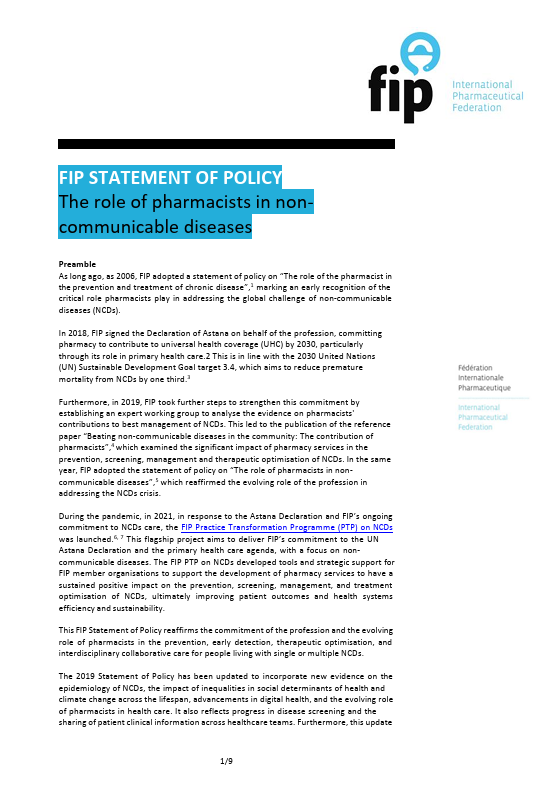Non-communicable diseases (NCDs) remain the world’s leading cause of preventable death, yet pharmacists are still underutilised in tackling this global crisis.
Reaffirming commitments made under the Astana Declaration and the FIP Practice Transformation Programme on NCDs, this updated policy reflects the latest evidence on the global impact of chronic diseases and highlights the vital role pharmacists play in prevention, early detection, treatment optimisation and ongoing care.
The statement outlines how pharmacists support patients at every stage, leading risk-factor screening, providing lifestyle counselling, managing complex medicines regimens, and coordinating care as part of interprofessional teams. In many communities, especially underserved areas, pharmacists are often the first and sometimes only point of care for people living with chronic conditions.
It also highlights the need to tackle social and economic inequalities that contribute to the global NCD burden and calls for better use of digital tools and data-sharing to strengthen prevention, monitoring and treatment.
FIP’s updated recommendations urge governments and policymakers to fully integrate pharmacists into national NCD strategies, expand their scope of practice, ensure fair remuneration for pharmacist-provided services and invest in workforce development to meet rising healthcare demands.
The statement also calls on pharmacy organisations, educators and the pharmaceutical industry to align efforts by developing practice guidelines, promoting evidence-based interventions and fostering research to demonstrate the value of pharmacist-led care.
Through this policy, FIP and its member organisations reaffirm their commitment to the WHO Global Action Plan on NCDs and universal health coverage — working together to reduce the global burden of chronic diseases, improve patient outcomes and strengthen sustainable health systems.


